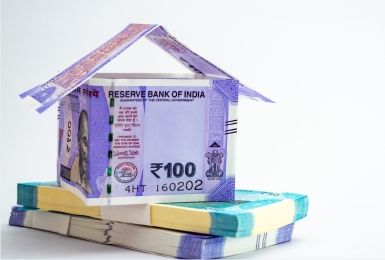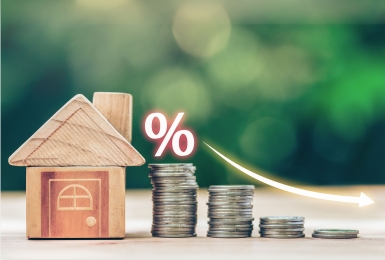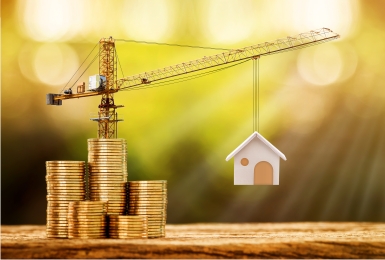A commercial property loan allows you to obtain substantial funding by mortgaging commercial real estate that you own. You can use this cash for your business or for any other profit-generating purpose. However, before you take a decision to take out a loan, you must first understand the fundamentals of a commercial property loan to make an informed decision.
What is the purpose of a commercial property loan?
A commercial property loan, also known as a loan against property, is a type of secured loan that is granted against the borrower's commercial properties. This property is kept as collateral by the bank or financial institution until the loan is fully repaid. A commercial property loan is available to both salaried and non-salaried individuals. The loan amount obtained through LAP (loan against property), can be used for a variety of purposes, including starting a business, purchasing a home, paying medical bills, meeting wedding-related expenses, paying education fees, etc.
Factors to consider before taking out a commercial property loan
• Eligibility & Documents Required: The first step is to determine your loan eligibility. Each bank or NBFC has its own set of eligibility requirements and criteria. Before applying for the loan, make sure you meet the criteria and have all of the necessary documents.
• Tenure: The loan tenure is the time period over which you will repay the loan. It usually lasts up to 15 years (depending upon the policy from bank to bank). Select a term that you believe you will be able to repay without default.
• Home improvement loan: Another important consideration is the fees and interest rates that vary from bank to bank. To get the best deal, compare offers from different banks & NBFCs before making your final decision.
• Prepayment Fees: Some banks charge a prepayment fee if you repay your loan before the term expires. This fee may differ from bank to bank.
• Loan-to-Value Ratio: The loan-to-value ratio is the percentage of the appraised market value divided by the loan amount. It usually ranges from 50% to 65%. (Depending upon the policy of the lending institution).
• Profile of the Developer: Your bank will also investigate the property developer's track record and financial stability.
• Technical Information: Your bank will also investigate the technical specifications of the property to ensure that it complies with all safety and environmental regulations. This includes things like fire safety measures, civic amenities, elevators, and so on.
• Regulatory Approvals: Before the loan can be disbursed, all government and municipal approvals must be in place. The approvals required vary depending on the location.
• Area: The size or area of the property is another important factor that banks consider, and some may even have a minimum property size requirement.
• Property Age: The age of the property is an important criterion to consider, as most banks prefer properties that are not too old.
Commercial property loan interest rate
Commercial property loan interest rates are decided by the bank based on your net monthly income, or NMI. Here's a quick reference chart to help you understand the various Commercial property loan interest rates brackets:
Commercial property loan EMI
The amount that you pay on a monthly basis to the bank, after the loan is taken, is known as EMI. It includes both the principal and interest amounts and works on a reducing balance basis. During the initial few years, the EMI has a larger portion
of the interest payment. Knowing the commercial property loan EMI amount, the break-up of EMIs, and the duration will help you plan your repayment and finances better. The commercial property loan rates play a significant role in determining the
total amount to be paid back. The rate varies depending on the bank or financial institution.
The three most important factors that influence EMIs are:
• Principal amount
• Tenure
• Rate of interest
Commercial property loan calculator
Commercial property loan calculators are fairly simple to use. Look for a commercial property loan calculator across any bank's website. Enter the loan amount, the loan tenure, and the interest rate, then click calculate. The calculator will show
you the monthly EMIs, the total principal and interest breakup, and the final amount to be paid. Note that majority of banks have fixed commercial property loan rates. If you need large sums of money for business or personal reasons and own a
property that qualifies for a commercial property loan, you should think about getting one because the interest rate and EMIs are lower than on other loans, and the loan process is quick and easy.
However, you should only consider obtaining
a commercial property loan if you are confident in your repayment ability, as the banks have the right to sell the property to recover dues in the event of a default. As a result, it is not advisable to stake your primary asset for a high-risk
business requirement.



















